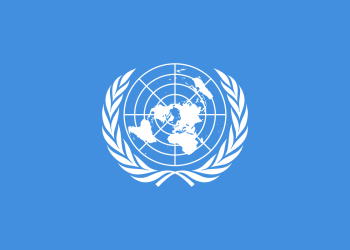Libya’s Price Stability Fund (PSF) denied being allocated LD 300 million to import basic commodities for the fasting month of Ramadan.
In an exclusive statement to Libya Herald, the Director General of the Price Stability Fund, Jamal Al-Shaibani, denied being allocated any sums of money to import basic commodities such as flour, oil, canned tomatoes, and rice, to contribute to providing them at reduced prices during the coming month of Ramadan.
He stressed that the circulating news regarding the disbursement of LD 300 million to the PSF is untrue, and that this figure was disbursed in 2016 during the era of the Faiez Sarraj government. However, since then, no funds have been allocated for the import of basic commodities to be distributed at subsidised prices to citizens through consumer cooperative societies.
Making the case for his organisation, he pointed out that the role of the PSF is to set policies and mechanisms that achieve a reduction in food prices, especially flour, rice and oil, and the basic materials necessary for the citizen’s sustenance remain until market stability is achieved.
The citizen has become a prey to overpricing merchants
Since 2016, he continued, the main controllers in the food market have become the traders. Those who obtain documentary credits for import at the official rate of foreign currencies, but sale prices are not set for ordinary citizens of the state, and the citizen has become a prey to merchants. This does not mean that all merchants exploit people in imposing prices that are not commensurate with their purchasing power, he added.
The PSF must be revived
The main function of the PSF must be revived, he added, which is to maintain price stability, not to leave the market at the mercy of the weak-minded of some exploitative traders, and to put in place mechanisms to impose prices commensurate with the economic conditions of the Libyans.
A critique of the PSF system and its welfare state principals
It is fair to say that there is much criticism in today’s Libya of the idea of the return to the hey days of the PSF’s subsidies under the Qaddafi regime. ‘‘Subsidies’’ has become a dirty word in Libya. A private sector-led economy is the official buzz word of post 2011 Libyan governments. There is a conviction that the state should not act on behalf of the citizen in imposing subsidies through electricity, food, fuel, cooking gas etc.
The new outlook is that the state should handover subsidies into citizens’ bank accounts and allow them the freedom to spend their cash on the kind of food, fuel, electricity/energy they like.
PSF was a den of corruption
The PSF was seen as a den of corruption either through personal commissions obtained by its buyers, the low-quality products and brands imported and forced upon consumers, or the illegal sale of its subsidised goods by PSF staff to the private sector – to be sold at market prices.
The corrupt Consumption Cooperatives
The Consumption Cooperatives, the distribution arms of the PSF’s subsidised goods, were notorious for their corruption. There were many mysterious fires that allegedly burnt their books so there were no records to be audited.
Subsidised products leaked to neighbouring states
At the height of Qaddafi’s era of subsidies, Libyan state subsidised products could be found on sale on either side of the road across the Tunisian border. Fuel and tea were amongst the favourites. Often, these products were unavailable in Libya, but were on show for sale on Tunisian roadsides. To differing extents, Libyan subsidised goods could be found in Niger, Chad and Sudan.
Today, Libya’s ridiculously subsidised fuel is still being smuggled to neighbouring countries – while often it can only be found at black market prices in Libya – and especially in the south
Post 2011 governments against subsidised goods – for cash subsidies
Even recent government ministers admitted that the days of the PSF were over. In March 2019, the then Minister of Economy and Industry, Ali Al-Issawi, said that the state-owned Price Stability Fund ‘‘is unable to assume the responsibility for providing price stability in the market’’, stressing that ‘‘the ministry has no plans to return to previous subsidy programmes’’.
“The PSF is facing great challenges, burdensome debts and onerous obligations,” Issawi had explained.
42-years of the Qaddafi regime proved the welfare state was a corrupt failure
The rationale for a return to the welfare socialist state of subsidies under the Qaddafi regime relies on the emotional appeal based on helping the poor and lowered incomed. But if there is one thing the 42-year Qaddafi regime proved is that the state is the most corrupt player in the Libyan market and the worse agent for distributing subsidies. The consensus today is that trade and commerce should be left to the private sector and that the state should use other tools to stabilise market prices.
Subsidies distort the citizen-ruler dynamic
On a higher plane, subsidies are considered undemocratic and a distortion of the citizen-ruler dynamic. This is especially the case in an authoritarian rentier state. Qaddafi had used the people’s wealth to buy their acquiescence. Oil money (and much coercion) was used to silence the masses in exchange for a lack of transparency and accountability.









